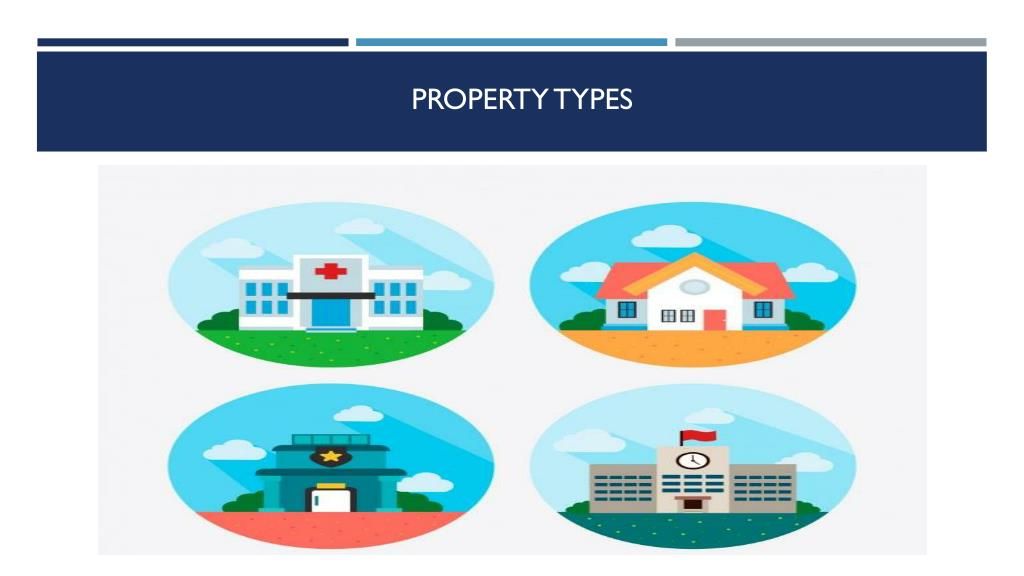The Crucial Role of Property Type Selection in Maximizing real Estate Returns

Investing in real estate has long been regarded as one of the most reliable ways to build wealth over time. However, the success of your real estate investment largely depends on making informed decisions, and perhaps the most critical of these is choosing the right property type. Selecting the appropriate property type can significantly impact your returns, making it essential to understand the importance of this decision.
Tailoring to Your Investment Goals
One of the primary reasons why selecting the right property type matters is that it allows you to tailor your investment to your specific financial goals. Real estate offers various property types, each with its own advantages and disadvantages. For example, if you aim for a steady stream of rental income, residential properties like apartments or single-family homes might be ideal. On the other hand, commercial properties, such as office buildings or retail spaces, may offer potential for higher returns but also come with greater risk.
To obtain maximum possible returns on your investment, align your property type with your financial objectives. This alignment ensures that your real estate investment strategy is in sync with your long-term goals, whether they involve income generation, capital appreciation, or a combination of both.
Understanding Market Dynamics
Different property types perform differently in various economic and geographic conditions. To maximize your returns, you must stay well-informed about market dynamics and how they affect your chosen property type.
For instance, during economic downturns, residential properties often remain more resilient as people continue to need housing. Conversely, commercial properties may experience higher vacancy rates during economic downturns, impacting your returns. By understanding these dynamics, you can time your investments and mitigate potential risks.
Risk Mitigation
The right property type can also help mitigate investment risks. Diversification across property types can be a prudent strategy to spread risk. For instance, investing in a mix of residential and commercial properties can provide a hedge against downturns in either sector. Additionally, understanding the local real estate market and the specific property type you are investing in can help you identify potential risks and develop strategies to manage them effectively.
Capital Appreciation vs. Cash Flow
Another critical factor in property type selection is the balance between capital appreciation and cash flow. Some property types, like residential properties in growing neighborhoods, may offer steady rental income but modest capital appreciation. Conversely, properties in prime commercial areas may appreciate rapidly but may not provide immediate cash flow.
Your investment goals and financial situation will influence which of these factors is more important to you. Consider the trade-offs and make an informed decision based on your objectives. In some cases, a mixed portfolio may be the best way to achieve a balanced approach.
Market Research and Due Diligence
Choosing the right property type requires thorough market research and due diligence. Investigate the supply and demand dynamics for the specific property type in your chosen location. Understand the local economic factors, demographics, and future growth prospects. This research will help you make an informed decision that aligns with your investment goals and maximizes potential returns.
Potential for Value-Add Opportunities
Certain property types offer more opportunities for value-add strategies, which can significantly increase your returns. For example, a run-down multifamily property can be renovated to increase rental income and property value. Similarly, commercial properties may benefit from repositioning or redevelopment efforts.
Identifying property types with untapped potential for improvement can be a lucrative way to maximize returns on your real estate investment. However, this approach requires careful analysis, investment capital, and a clear strategy.
Tax Considerations
The tax implications of your real estate investment can also vary depending on the property type. Different property types may qualify for different tax incentives and deductions. It's crucial to consult with tax professionals to optimize your tax strategy and ensure that you're taking advantage of all available benefits.
Investing in the right property type is a fundamental step in maximizing returns on your real estate investment. Your choice should align with your financial goals, risk tolerance, and market dynamics. It requires thorough research, careful analysis, and a clear understanding of the factors that drive returns in your chosen property type. By making an informed decision and staying vigilant about market conditions, you can increase the likelihood of achieving your real estate investment objectives and securing maximum possible returns. Remember that the right property type can be a powerful tool in your wealth-building journey through real estate.
Share this post













